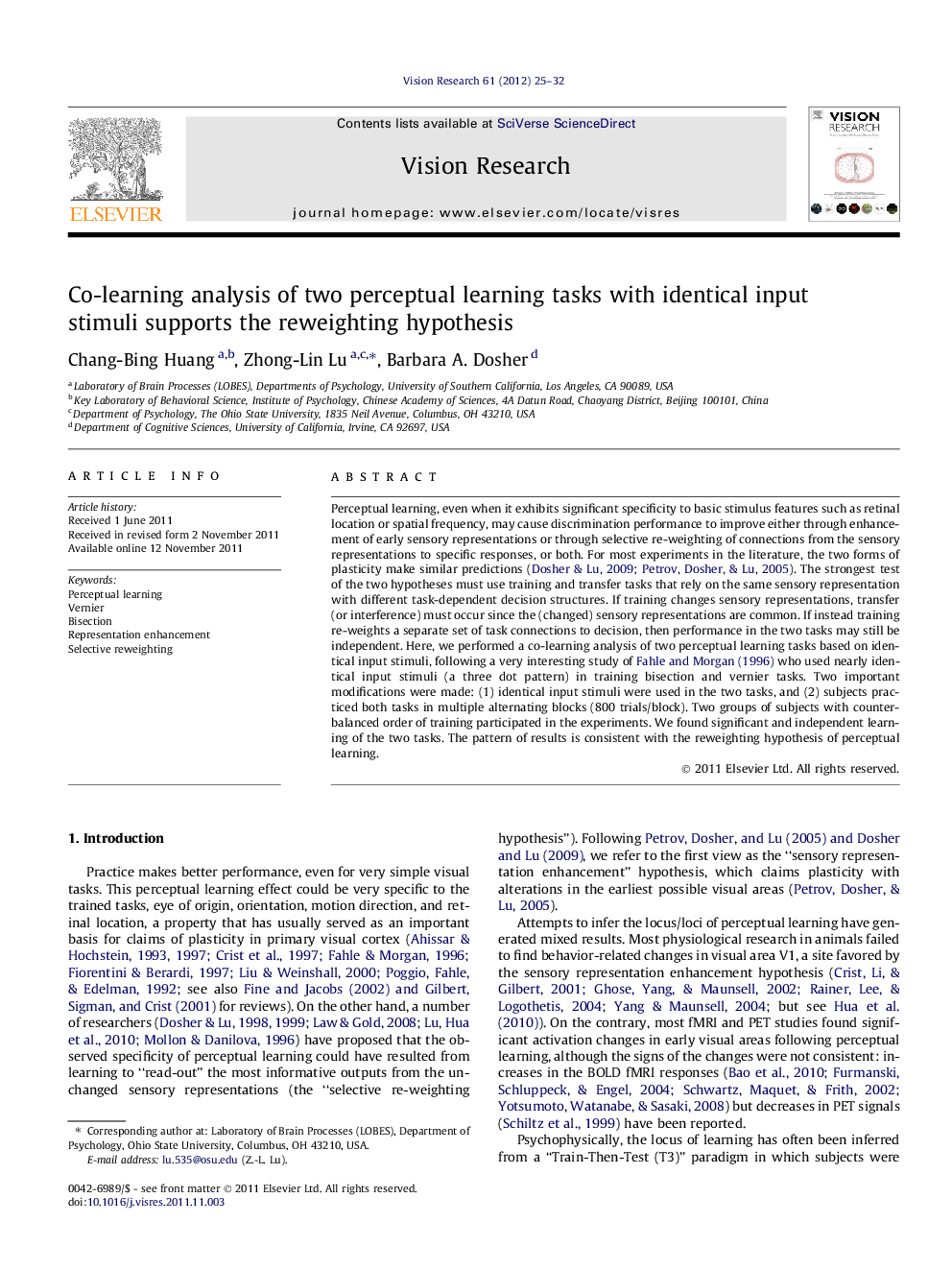| Article ID | Journal | Published Year | Pages | File Type |
|---|---|---|---|---|
| 4034004 | Vision Research | 2012 | 8 Pages |
Perceptual learning, even when it exhibits significant specificity to basic stimulus features such as retinal location or spatial frequency, may cause discrimination performance to improve either through enhancement of early sensory representations or through selective re-weighting of connections from the sensory representations to specific responses, or both. For most experiments in the literature, the two forms of plasticity make similar predictions (Dosher and Lu, 2009 and Petrov et al., 2005). The strongest test of the two hypotheses must use training and transfer tasks that rely on the same sensory representation with different task-dependent decision structures. If training changes sensory representations, transfer (or interference) must occur since the (changed) sensory representations are common. If instead training re-weights a separate set of task connections to decision, then performance in the two tasks may still be independent. Here, we performed a co-learning analysis of two perceptual learning tasks based on identical input stimuli, following a very interesting study of Fahle and Morgan (1996) who used nearly identical input stimuli (a three dot pattern) in training bisection and vernier tasks. Two important modifications were made: (1) identical input stimuli were used in the two tasks, and (2) subjects practiced both tasks in multiple alternating blocks (800 trials/block). Two groups of subjects with counter-balanced order of training participated in the experiments. We found significant and independent learning of the two tasks. The pattern of results is consistent with the reweighting hypothesis of perceptual learning.
► We trained subjects with two different tasks with identical input stimuli in alternating blocks. ► Independent learning of the two tasks was found. ► A selective reweighting model successfully explained our data. ► Our results are consistent with the selective reweighting hypothesis.
